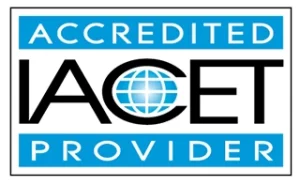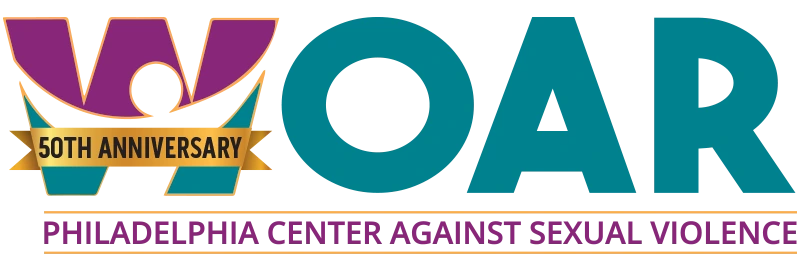WOAR – Philadelphia Center Against Sexual Violence is proud to partner with Drexel University College of Medicine/Behavioral Healthcare Education to offer Continuing Education Credit opportunities for this Symposium.
Overall Symposium Objectives
Through participation in WOAR’s BE THE CHANGE Symposium students will be exposed to 5 hours of content focused on the history of policy and practice in supporting survivors of sexual violence, the role of human trafficking in sexual violence, the impact of sexual violence trauma on housing, employment, and other insecurities, and the latest practices of healing from sexual trauma. Participants will also hear from an internationally-renowned expert on how trauma impacts not only those who experience it but the people and organizations that interact with survivors of violence.
Target Audience: Professionals in psychology, clinical psychology, and social work; students seeking advanced degrees in psychology, social work, counseling, or related field; general students seeking psychological or government systems education.
Learning Objectives
BREAKFAST PLENARY PANEL: The Movement to End Sexual Violence in Philadelphia Then and Now the Lens of WOAR at 50 Years
Following this panel session, participants will be able to:
- Identify the legal and systemic frameworks for supporting and protecting survivors of sexual violence
- Describe the legal and legislative conditions surrounding the origins of the sexual violence and domestic violence movements in the US
- Apply these historic learnings to the current dynamics of communities facing systemic oppression in Philadelphia
- Identify the components of intersectionality across realms of violence and oppression currently facing communities in Philadelphia
PANEL 1: Demystifying Human Trafficking in The City Of Philadelphia
Following this panel session, participants will be able to:
- Describe the definitions of and trends surrounding human trafficking facing regional communities
- Identify the legal and law enforcement responsibilities and jurisdictions involved in fighting and preventing human trafficking
- Describe the individual survivor experience of trafficking and its impact on those affected
- Evaluate the definition of trafficking and the difference between an individual’s free choice and coercion/trafficking
PANEL 2: Beyond the Incident: The Impact of Economic, Housing, Health, and Other Insecurities on Healing from Sexual Trauma
Following this panel session, participants will be able to:
- Describe the social and structural conditions, including economic vulnerability, housing and legal challenges, impacting survivors of sexual trauma
- Identify data and trends regarding the impact of sexual violence on an individual’s physical and mental health
- Define numerous methods for assessing the impact of sexual violence on the lives of survivors
- Apply critical thinking to formulate strategies and structural approaches for working with survivors of sexual violence to support their holistic needs
KEYNOTE ADDRESS: Breaking the Cycles of Trauma that Bind Our Communities in Violence
Following this panel session, participants will be able to:
- Describe a trauma-informed approach to organizational management
- Identify dynamics of the creating presence model for creating trauma-informed organizations and systems
- Define the paradigm of the biocratic organization and the universal precautions that support that organizational definition
Panel 3: Trauma-Informed Care: Assessing and Integrating Physical and Mental Health Supports Following Sexual Trauma in Children and Adults
Following this panel session, participants will be able to:
- Describe trauma-informed care models and ways healthcare and mental healthcare organizations can change to create an environment that is welcoming and sustaining to those who have experienced sexual trauma.
- Identify multiple examples of integrated clinical methods for trauma-informed care
- Apply strategies for integrating physical and mental health supports with survivors
- Describe emergent practices for assessing treatment options according to a clinical team approach to trauma-informed care
PANEL 1: Demystifying Human Trafficking in The City Of Philadelphia
Following this panel session, participants will be able to:
- Describe the definitions of and trends surrounding human trafficking facing regional communities
- Identify the legal and law enforcement responsibilities and jurisdictions involved in fighting and preventing human trafficking
- Describe the individual survivor experience of trafficking and its impact on those affected
- Evaluate the definition of trafficking and the difference between an individual’s free choice and coercion/trafficking
PANEL 2: Beyond the Incident: The Impact of Economic, Housing, Health, and Other Insecurities on Healing from Sexual Trauma
Following this panel session, participants will be able to:
- Describe the economic impacts faced by survivors of sexual trauma
- Identify data and trends regarding the impact of sexual violence on an individual’s physical and mental health
- Define numerous methods for assessing the impact of sexual violence on the lives of survivors
- Apply critical thinking
KEYNOTE ADDRESS: Breaking the Cycles of Trauma that Bind Our Communities in Violence
Following this panel session, participants will be able to:
- Describe the trauma-informed approach to organizational management
- Identify the four dynamics of the creating presence model for creating trauma-informed organizations and systems
- Evaluate how to apply the three conditions of trauma-informed systems (trauma-informed, trauma-responsive, trauma-resilient) to the clinical work environment
PANEL 3: Trauma-Informed Care: Assessing and Integrating Physical and Mental Health Supports Following Sexual Trauma in Children and Adults
Following this panel session, participants will be able to:
- Identify multiple examples of integrated clinical methods for trauma-informed care
- Apply an understanding of strategies for integrating physical and mental health supports with survivors
- Describe emergent practices for assessing treatment options according to a clinical team approach to trauma-informed care
Continuing Education Credits
APA (Psychologists): Drexel University College of Medicine, Behavioral Healthcare Education is approved by the American Psychological Association to sponsor continuing education for psychologists. Drexel University College of Medicine, Behavioral Healthcare Education maintains responsibility for the program and its content. This program is being offered for up to 5 hours of continuing education.

CEU (IACET): Drexel University College of Medicine/Behavioral Healthcare Education has been accredited as an Authorized Provider by the International Accreditation for Continuing Education and Training (IACET), 11130 Sunrise Valley Drive, Suite 350, Reston, VA 20191. In obtaining this approval, Drexel University College of Medicine/Behavioral Healthcare Education has demonstrated that it complies with the ANSI/ IACET Standard which is widely recognized as the Standard of good practice internationally. As a result of their Authorized Provider accreditation status Drexel University College of Medicine/Behavioral Healthcare Education is authorized to offer IACET CEUs for its programs that qualify under the ANSI/ IACET Standard. The Drexel University College of Medicine/Behavioral Healthcare Education is authorized by IACET to offer 0.5 CEUs for this program.
LSW/LCSW/LPC/LMFT (PA SBSWE Licensed Social Workers in Pennsylvania): Drexel University College of Medicine is a preapproved provider of continuing education for Social Workers and Clinical Social Workers. This program is being offered for up to
5 hours of continuing education.








